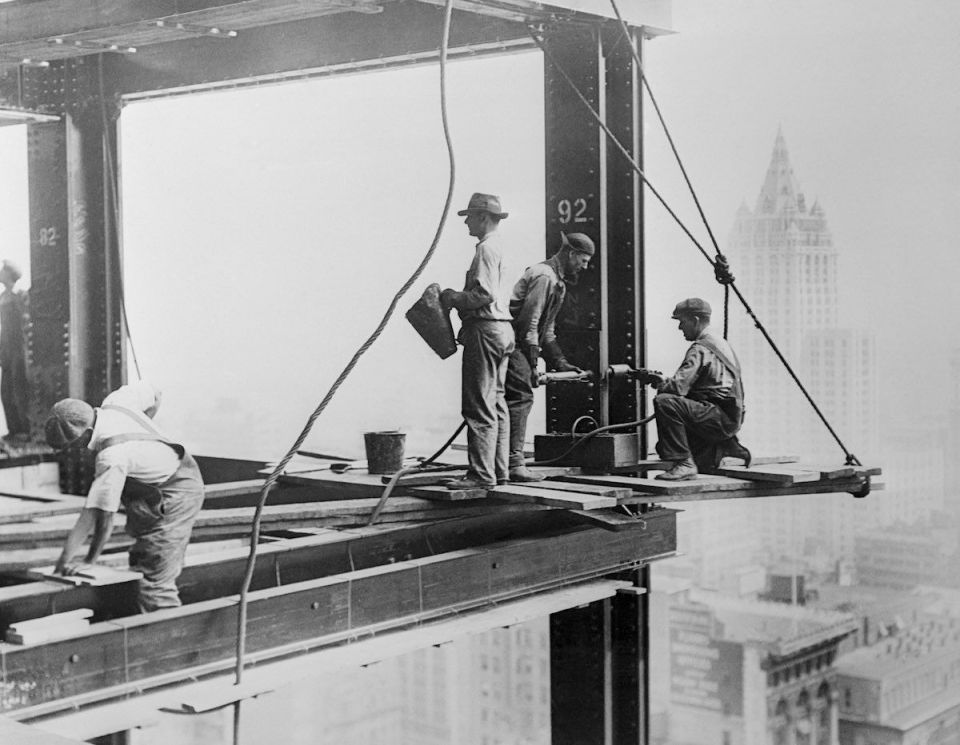Home » Posts tagged 'google'
Tag Archives: google
GOOGLE FIRES EMPLOYEE FOR NOT BELIEVING IN DIVERSITY

In a remarkable breach of personal liberty, Google has fired one of its engineers for circulating a manifesto critiquing the company’s diversity policies.
Danielle Brown, Google’s Vice-President for Diversity, Integrity, and Governance, condemned the views expressed in the manifesto in a statement issued to staff. Brown told staff:
“We are unequivocal in our belief that diversity and inclusion are critical to our success as a company. We’ll continue to stand for that and be committed to it for the long haul.”
The employee, James Damore, confirmed his dismissal (for ‘perpetuating gender stereotypes’) in an e-mail to Bloomberg. In his manifesto, Damore accused the tech giant of silencing conservative political opinions and claimed that the lack of women in technology could be explained by biological differences between men and women.
MEN BUILD CIVILISATIONS

There is an alarming trend in media today. Type into google ‘men are useless’, ‘men are worthless’, or ‘society doesn’t need men and various articles, mostly by left wing and pro-feminist news organisations, will come up. These articles have the same basic message: men are, at best, a nuisance in the age of ‘girl power’.
Feminist philosophy is centred around the idea – a conspiracy theory in reality – that men have deliberately conspired to keep women down and take power for themselves. In reality, the differences in male and female achievements have been the result of the differing expectations thrust upon men and women and the different choices they make. As Camille Paglia wrote in her article It’s a Man’s World: “history must be seen clearly and fairly: obstructive traditions arose not from men’s hatred or enslavement of women but from the natural division of labour that had developed over thousands of years during the agrarian period and that once immensely benefited and protected women, permitting them to stay at hearth to care for helpless infants and children.” Civilisations were constructed not to keep women down, but for their benefit. The result of this natural division of labour is that men have dominated many tiers of achievement.
It could, therefore, be argued that much of feminism’s vitriol towards men is derived not from injustice, but from envy over male achievements. Second and third wave feminists have spent a great deal of time vilifying men and turning their shortcomings into symbols of pure evil. They have written a slew of anti-male books designed to erase men’s contribution to civilisation and devalue their achievements. Among the more infamous have been the End of Men by Hanna Rosin, Are Men Necessary by Maureen Dowd, and the Female Brain, in which author Louann Bridendine tells men they’ll be envious of the female brain. (Just imagine the reaction if an author wrote a book telling women they’d envious of male brains!).

What these writers fail to understand is that men are the builders and protectors of civilisations. It has always been men, and not women, who have built the larger edifices of civilisation, who have constructed the institutions upon which civilisations are founded, who have been the pioneers in virtually every aspect of human endeavour, and who take up arms to protect civilisations (and as a natural extension, its women) from outside threats [1].
In philosophy, it is men who have given us Plato’s Republic, Aristotle’s Nicomachean Ethics, Thomas Hobbes Leviathan, John Locke’s Second Treatise of Government, and Arthur Schopenhauer’s The World as Will and Idea. In literature, men have given us Homer’s the Iliad, Shakespeare, Charles Dicken’s Great Expectations, Fyodor Dostoevsky’s Crime and Punishment, and Leo Tolstoy’s War and Peace. Johannes Gutenberg gave us the printing press, Alexander Graham Bell gave us the telephone, Thomas Alva Edison gave us the lightbulb, and Karl Benz gave us the car. The modern world is an epic of male achievement.

Needless to say, society views men and women differently. Drawing from mountains of data on gender stereotypes, psychologist Alice Eagly found the existence of a ‘women are wonderful’ sentiment held by both men and women. Women are considered women purely by virtue of their existence. By contrast, manhood has to be earnt. Civilisation and culture set up the parameters upon which men ‘earn’ their masculinity.
Much of the ‘earnt manhood’ philosophy comes from the different roles men and women have occupied in civilisations. Men have always been expected to build and protect civilisation. Women, on the other hand, have always been valued as creators of life. This is derived from a symbiotic relationship between men and women which existed for civilisation’s benefit. Civilisation was organised so male strengths could offset female weaknesses, and vice-versa.
In reality, men are both better and worse than women, and the way society views its men depends on which men it chooses to focus on. If a society chooses to focus on men who are leaders, entrepreneurs, social reformers, and innovators, it will conclude that men are ‘better than women.’ But if it chooses to focus on men who are homeless, incarcerated, mentally ill, or suffering from intellectual disabilities, it will conclude that ‘women are better than men.’

It is motivation, not ability, that explains the vast differences in achievements between men and women. Men and women are motivated by different incentives to attempt different tasks. Research by Jacquelynne Eccles suggests that the shortage of women in maths and science is not the result of women’s inability to perform well in these fields per se, but a reflection of their different motivational choices. In simpler terms, there are fewer women in the maths and sciences because women are less inclined to study those fields. Similarly, fewer men do housework or change dirty diapers because they are not inclined to do so.
And, of course, the way one chooses to spend one’s time will reap different rewards. This may explain the often-fabled gender pay-gap myth in which feminists argue that women are deliberately and systemically paid less than their male colleagues. In fact, economic study after economic study has found that the difference in earnings between men and women are the result of different lifestyle choices men and women make. Men, on average, are willing to work longer hours and take fewer holidays. (To be fair, women do take significant time off work to raise children). This explains why men not only earn more money over the course of their working lifetimes but also why men gain more promotions and climb the ladder of success better than women.
Society encourages men to attempt high-risk ventures for the benefit of society and gives them big rewards when they manage to pull them off. (Women are not encouraged to take big risks and therefore do not reap big rewards.) It is men who are sent off to die in war, it is men who are given the dirty and dangerous jobs, and it is men who comprise the vast majority of workplace deaths. Women have never been expected to sacrifice themselves in this way and society has never seen fit to reward them in the way it has rewarded men.
It is a well-known fact among economists that men are, on average, more willing to take risks than women. One explanation for this may be the historic differences between the reproductive success of men and women. DNA analysis suggests that today’s population is descended from twice as many women as men. It would be reasonable to assume that this disparity has produced some significant personality differences.
For women, the best strategy was to play it safe, be nice, and go along with the crowd. Sooner or later, a decent man would come along with whom she could have children. It is no wonder, then, that women are not known for exploring uncharted territories or conquering far off lands. As Roy F. Baumeister, social psychologist at the University of Queensland, puts it: “we’re descended from women who played it safe.”
For men, however, the outlook was radically different. The competition between males for available females was a lot tougher. A man can choose to sit at home and play it safe if he wants to, but he probably won’t reproduce. Men, therefore, had to distinguish themselves by becoming risk-takers and innovators. Men who took big risks and managed to pull them off reproduced, men who stayed at home didn’t.
The American psychologist B.F. Skinner once wrote: “Men build society and society builds men.” It is the result of the different expectations civilisation thrust upon men and women and the different choices they make. Men are expected to ‘earn’ their manhood and are motivated by different things than women. Feminists can ridicule masculinity and male achievements as much as they like, but female achievement is only possible in civilisations that have been modernised and protected by men. And when things go wrong, as they inevitably will, it will be men, and not women, who save the day.
[1] One should also note that it has been the social and technological advances achieved by men that have freed women from lives as homemakers and child-bearers.
